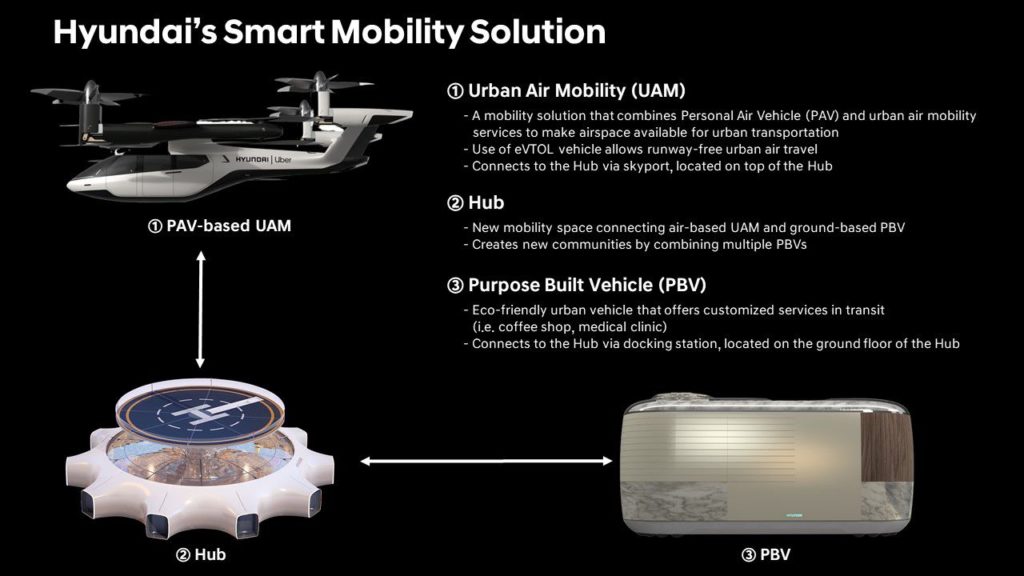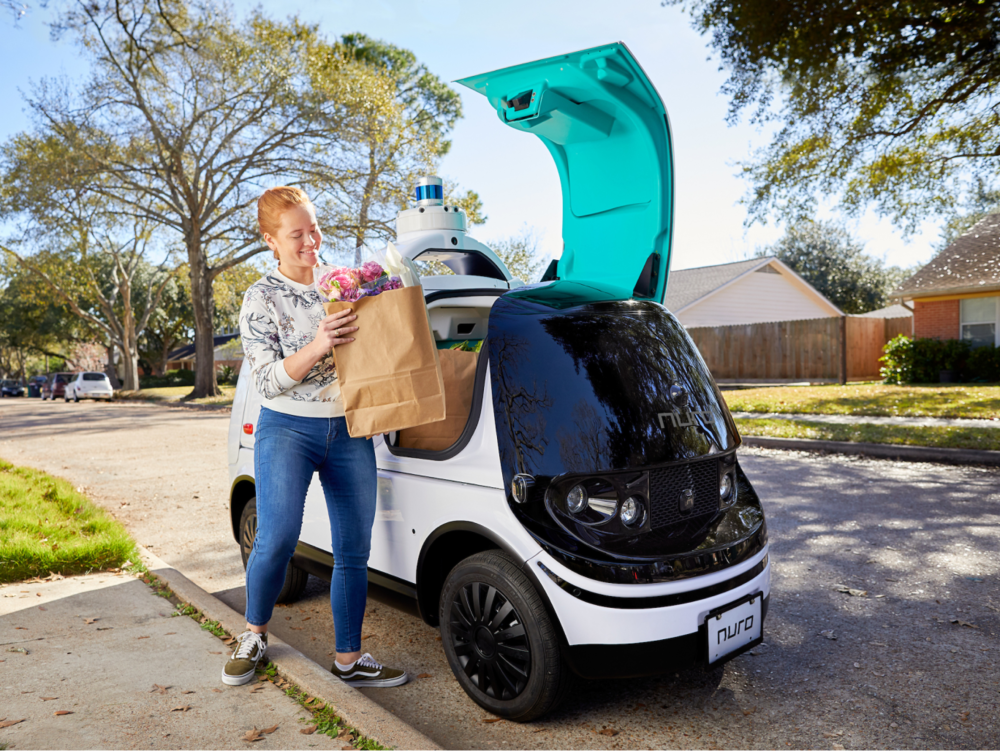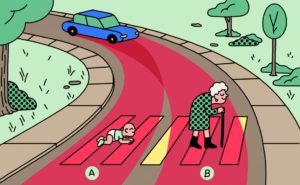Uber and Hyundai are collaborating to develop electric air taxis. The cars would revolutionize urban transportation. According to both businesses, they are entering a global race that will result in the advancement of ways to reduce traffic congestion in the world’s largest cities. Since 2016, Uber has been educating customers about the possibility of flying taxis. He intends to collaborate in this region with a total of eight firms. It functions as a safety net. The American corporation acknowledges that expecting all of its suppliers to hit the market at the same time would be unrealistic and irresponsible form business point of view.
Uber revealed its collaboration with Hyundai at the Consumer Electronics Show (CES). The company will produce flying taxis for Uber. A concept of such a vehicle and its associated infrastructure was also shown. The vehicles will be manufactured by the South Korean company, and Uber will, of course, offer flight sharing services. Aurora Flight Sciences, a division of Boeing, will also follow them.

The flying taxis developed by Uber and Hyundai would be entirely electric and therefore very silent. They claim that by using smaller, electric-powered rotors, the aircraft can emit less noise than a combustion engine helicopter, which is important for communities concerned with noise emissions. The battery will allow you to travel up to 290 km/h over a maximum distance of 100 km. The vehicle can fly at altitudes ranging from 300 to 600 meters. During peak hours, recharging can take just between five or seven minutes. The cars would be capable of transporting up to four passengers. One of them will serve as the pilot at first. Uber will not have a completely automated fleet available to consumers until after 2028.
Hyundai also revealed designs for a landing center and an environmentally sustainable “Purpose Built Vehicle” (PBV) for ground transportation to and from the station. According to Hyundai, the PBV will look like a beige rectangle and will use AI to search suitable routes and fly in platoons. Each PBV would be able to perform a variety of functions, such as transportation, a coffee shop, or a medical clinic.
And how long would such a luxury set you back?
Uber did not have specific pricing. We should anticipate that it would be expensive at first. Only as more air taxis arrive in the sky does the rate drop to that of Uber Black providers. According to Uber, if vehicles become self-driving, the expense of renting a cab would be the same as the cost of a regular car.
What’s next?
According to Uber’s announcements, the first private flying taxis could be operational as early as 2023. For the time being, it is only available in the United States. Currently the vehicles will only be operated by qualified drivers during the first phase of the project. However, the air taxis would eventually be completely autonomous. If it becomes success the vehicles will be for sure introduced in other countries. As a result of success, long flights will be avoided. The technology is still in its early stages, and Uber and Hyundai, as well as a number of other players in the market, face immense regulatory and technological hurdles in launching their respective air taxi services.
In few years we will find out if air taxis will become our new reality.
Sources:
https://www.cnbc.com/2020/01/06/hyundai-and-uber-team-up-to-debut-new-flying-taxis-at-ces.html
https://www.hyundai.com/worldwide/en/company/newsroom/-0000016369
https://www.technologymagazine.com/digital-transformation/uber-and-hyundai-future-air-taxis
https://www.focus.pl/artykul/za-4-lata-polecisz-uberem-podniebna-taksowke-wyprodukuje-hyundai
















